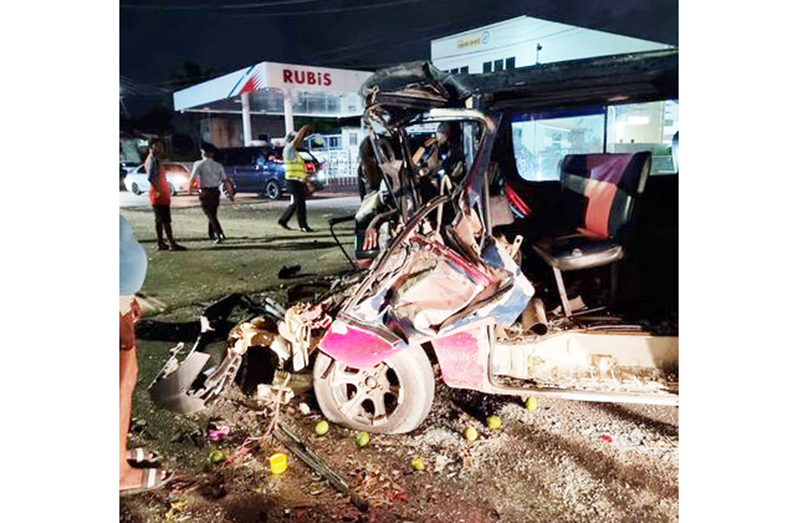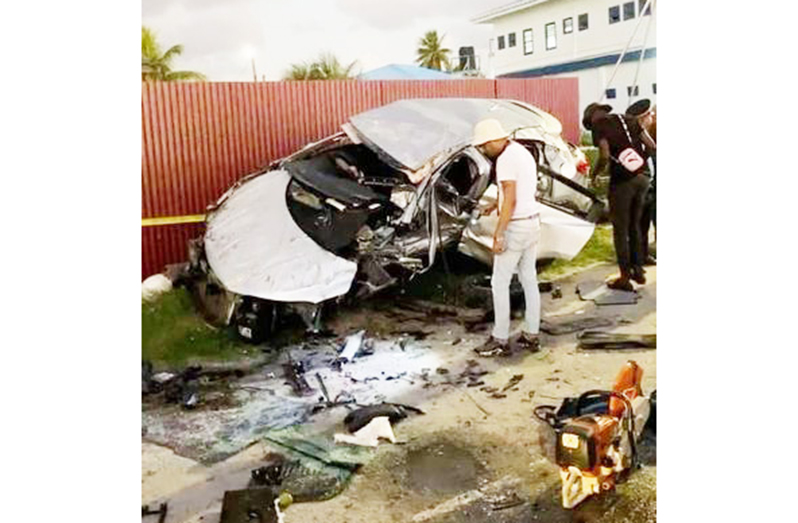Statistics released by the Home Affairs Ministry recently revealed a sharp surge in fatal accidents in 2023, with a 76.8% increase in fatalities over the previous year.
And the main cause, according to the Guyana Police Force, is speeding.
Furthermore, statistics from Guyana First National Survey on Gender-Based Violence which was released in 2019, revealed that one in two women in the country has experienced or will experience intimate partner violence (IPV) at some point in their lives.
In response, the University of Guyana (UG) is working with partners to conduct research with the goal of lowering the incidence of both domestic violence and traffic accidents.
Dr. Emmanuel Cummings, UG’s Deputy Vice Chancellor of Academic Engagement, recently disclosed this information during a programme hosted by GlobeSpan.
He stated that the institution strives to have research that is “in sync” with both national development and the Sustainable Development Goals (SDGs) of the United Nations (UN).
Through a grant, he said that UG is addressing injury and trauma issues in partnership with the Health Ministry, Georgetown Public Hospital (GPH), and Columbia University in New York.
But why this area?

“It speaks about domestic violence, it speaks about road accidents, it speaks about violence. And those are topical issues and this is an important area of research,” Dr. Cummings explained.
A unique post-graduate Certificate in Trauma and Grief Resilience was introduced by UG last year for professionals working in schools, communities, and interpersonal settings. The programme equips professionals to support individuals coping with trauma and grief.
“We feel as a university, part of our remit is to do the kinds of research, having the kinds of intervention to address issues that are of national concern,” Dr. Cummings said, emphasising that UG takes its job seriously.
We read news about violent crimes, accidents, substance abuse, and the aftermath of all of that every day, he continued, adding that these are important areas for research.
He stated that the university’s Faculty of Technology is currently conducting research to lower vehicle accidents so that the institution can collaborate with the national development project regarding road engineering. Within the institution, research is being done in many fields by other faculties, schools, and colleges, Dr. Cummings added.
Moreover, he pointed out that this will encourage multidisciplinary research.

Among the steps the university is taking in order to address domestic violence, according to Dr. Cummings, are raising awareness of this social ill and its legal ramifications.
In response to the high incidences of traffic accidents, some of which have resulted in deaths, the Government of Guyana has made sweeping changes to the country’s driving laws, which have now imposed much harsher penalties for traffic offences.
For instance, the Motor Vehicle and Road Traffic Act was amended to introduce the offences of motor manslaughter and causing grievous bodily harm while driving a motor vehicle under the influence. Persons convicted of the former offence faces imprisonment for not less than 10 years.
Tougher penalties, including a fine of $200,000 and a jail sentence of 24 months, have been introduced for those caught driving under the influence of alcohol.
The Act also provides for a 12-month suspension of offenders’ driver’s licence.
Meanwhile, work is currently ongoing to modernise the Domestic Violence Act and once this is done, there will be tougher penalties for perpetrators of this crime.





.jpg)








